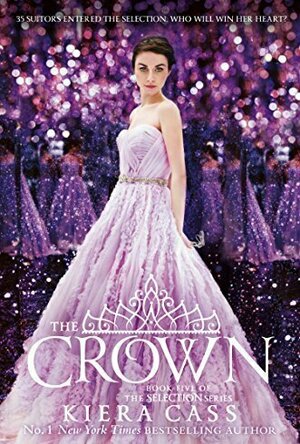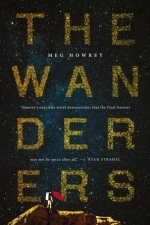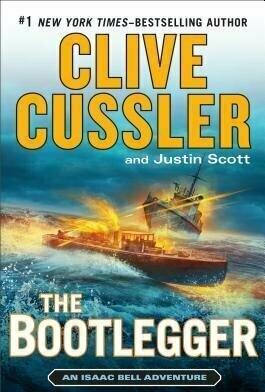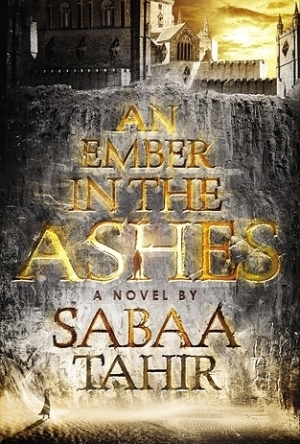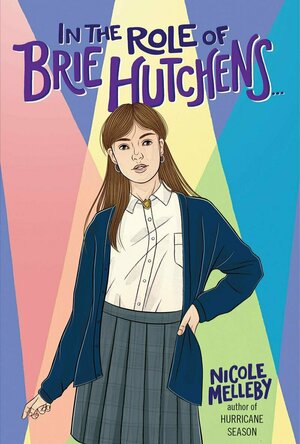Search
Search results
Hazel (1853 KP) rated The Crown (The Selection, #5) in Books
Dec 17, 2018
3.5 stars
<i>This ebook was provided by the publisher via NetGalley in exchange for an honest review </i>
So here it is, the latest (final?) book of <i>The Selection</i> series by popular young adult author Kiera Cass. <i>The Crown</i> continues from the exact place that the previous book, <i>The Heir</i>, left off, with Queen America having suffered a heart attack, and Eadlyn’s twin brother running off to France after secretly marrying. Regardless of the personal troubles, the royal family must keep on running the country of Illéa, however this means that great responsibilities are now resting on teenage Eadlyn’s shoulders.
Readers will already know that the wife, or in this instance husband, of the heir of the throne is chosen through a selection process. Thirty-five suitors were randomly selected from thousands of applicants to try and win the princess’ heart. The boys have been narrowed down to six, but Eadlyn has more pressing issues to worry about. Naturally she is concerned about her mother’s health and sad about being separated from her twin, but the biggest thing on her mind is being named regent whilst her father stays by his wife’s bedside. Eadlyn must temporarily rule like a queen, which is easier said than done.
There is less focus on the selection process in <i>The Crown</i> than there was in the first three novels – where America was eventually selected to become Prince Maxon’s bride. Primarily this is because Eadlyn’s heart is not in it. She does not love any of the elite – the top contestants – and it is only for public appearances that she continues with the game. What Kiera Cass emphasizes in this novel is that being a princess is not all parties and money and power. Instead it is hard work, physically and emotionally exhausting, and almost impossible to be your own person. Initially Eadlyn was viewed as a cold-hearted, spoilt child, but her new responsibilities open her eyes to the ways of the world, revealing her better nature to the people of Illéa.
Unfortunately it needs to be said that <i>The Crown</i> does not quite live up to the rest of the books in the series. The idea of a selection process feels old and over done, and Eadlyn’s personality does not quite work for a romance novel. The conclusion of the book appeared to happen a bit too suddenly, and also rather conveniently. What should have resulted in protest or at least disappointment for a few of the characters became something that was easily accepted instead. Not entirely realistic.
On the other hand, the ending is what most readers will have wished for, myself included, so must not complain too much. It is great to be reunited with the lovely characters, particularly the thoughtful and kind selected suitors, and Eadlyn’s sweet younger brothers. They are the types of people you would feel blessed to know in real life. All in all, <i>The Crown</i> is likely to put a smile on your face.
<i>This ebook was provided by the publisher via NetGalley in exchange for an honest review </i>
So here it is, the latest (final?) book of <i>The Selection</i> series by popular young adult author Kiera Cass. <i>The Crown</i> continues from the exact place that the previous book, <i>The Heir</i>, left off, with Queen America having suffered a heart attack, and Eadlyn’s twin brother running off to France after secretly marrying. Regardless of the personal troubles, the royal family must keep on running the country of Illéa, however this means that great responsibilities are now resting on teenage Eadlyn’s shoulders.
Readers will already know that the wife, or in this instance husband, of the heir of the throne is chosen through a selection process. Thirty-five suitors were randomly selected from thousands of applicants to try and win the princess’ heart. The boys have been narrowed down to six, but Eadlyn has more pressing issues to worry about. Naturally she is concerned about her mother’s health and sad about being separated from her twin, but the biggest thing on her mind is being named regent whilst her father stays by his wife’s bedside. Eadlyn must temporarily rule like a queen, which is easier said than done.
There is less focus on the selection process in <i>The Crown</i> than there was in the first three novels – where America was eventually selected to become Prince Maxon’s bride. Primarily this is because Eadlyn’s heart is not in it. She does not love any of the elite – the top contestants – and it is only for public appearances that she continues with the game. What Kiera Cass emphasizes in this novel is that being a princess is not all parties and money and power. Instead it is hard work, physically and emotionally exhausting, and almost impossible to be your own person. Initially Eadlyn was viewed as a cold-hearted, spoilt child, but her new responsibilities open her eyes to the ways of the world, revealing her better nature to the people of Illéa.
Unfortunately it needs to be said that <i>The Crown</i> does not quite live up to the rest of the books in the series. The idea of a selection process feels old and over done, and Eadlyn’s personality does not quite work for a romance novel. The conclusion of the book appeared to happen a bit too suddenly, and also rather conveniently. What should have resulted in protest or at least disappointment for a few of the characters became something that was easily accepted instead. Not entirely realistic.
On the other hand, the ending is what most readers will have wished for, myself included, so must not complain too much. It is great to be reunited with the lovely characters, particularly the thoughtful and kind selected suitors, and Eadlyn’s sweet younger brothers. They are the types of people you would feel blessed to know in real life. All in all, <i>The Crown</i> is likely to put a smile on your face.
Hazel (1853 KP) rated The Wanderers in Books
Dec 17, 2018
<i>I received this book for free through Goodreads First Reads.
“As they look to the stars, what are they missing back home?” </i>In a handful of year’s time, it can be presumed that dreams of humans on Mars will become closer to a reality. In Meg Howey’s <i>The Wanderers</i>, the time has come to select the potential candidates to participate in the first crewed mission to the Red Planet. Yet, as the astronauts prepare to walk among the stars, their families are left to consider a life without them.
The story is told through the perspectives of seven characters. Perhaps the most important are the three astronauts: Helen, Sergei and Yoshi, who are enclosed in a tiny mock-spacecraft, as they practice the hypothetical challenges and experiences they may encounter on a real trip to Mars. The remaining chapters are shared out amongst family members: Mireille, Helen’s adult daughter; Dmitri, Sergei’s fifteen-year old son; and Madoka, Yoshi’s wife – the final character being Luke, a psychiatrist tasked with observing the mental state of the astronauts throughout the experiment.
Interestingly, those being left behind are less concerned about their parent or spouse, choosing to focus on their own, everyday life, problems. Left to their own devices, they worry about their careers, their sexuality and the ways in which others perceive them. All, presumably as a result of the lack of contact with their significant family member, have become capable of surviving independently, however do not appear to realize how lonely they are.
The astronauts, on the other hand, are preoccupied with thoughts of space, concentrating so hard on the mission ahead of them that they fail to think of anything else. However, after months of only having each other for company, their thoughts begin to drift in the direction of home, their childhood, worries about their family, guilt – all notions that are fairly alien to the career driven characters.
Whilst it is interesting to witness the character developments, there is not a significant storyline. The book only encompasses the training period for the prospective space mission, and does not appear to have a substantial conclusion. Whether the astronauts eventually make it to Mars, and whether their consciences encourage them to behave differently towards their families, remains unknown.
<i>The Wanderers</i> has the essence of a work of fiction that English Literature students or professors would enjoy pulling apart, examining the language and literary techniques as they seek the understanding of the various emotions portrayed. Unfortunately, the majority will not have chosen to read this book for this precise purpose, expecting a science fiction novel full of excitement and interesting plot. Without either of these elements taking precedence, many are bound to be disappointed.
My rating for this book (two of five stars) is on the basis of the storyline, rather than the concept of family versus space. Yes, Howey writes well, is informed of the ins and outs of space programmes, and is knowledgeable enough to write an accurate representation of an astronaut’s experience, however as a form of entertainment, it is considerably lacking. Those expecting a narrative similar to other well-written science fiction novels will be sorely disappointed.
“As they look to the stars, what are they missing back home?” </i>In a handful of year’s time, it can be presumed that dreams of humans on Mars will become closer to a reality. In Meg Howey’s <i>The Wanderers</i>, the time has come to select the potential candidates to participate in the first crewed mission to the Red Planet. Yet, as the astronauts prepare to walk among the stars, their families are left to consider a life without them.
The story is told through the perspectives of seven characters. Perhaps the most important are the three astronauts: Helen, Sergei and Yoshi, who are enclosed in a tiny mock-spacecraft, as they practice the hypothetical challenges and experiences they may encounter on a real trip to Mars. The remaining chapters are shared out amongst family members: Mireille, Helen’s adult daughter; Dmitri, Sergei’s fifteen-year old son; and Madoka, Yoshi’s wife – the final character being Luke, a psychiatrist tasked with observing the mental state of the astronauts throughout the experiment.
Interestingly, those being left behind are less concerned about their parent or spouse, choosing to focus on their own, everyday life, problems. Left to their own devices, they worry about their careers, their sexuality and the ways in which others perceive them. All, presumably as a result of the lack of contact with their significant family member, have become capable of surviving independently, however do not appear to realize how lonely they are.
The astronauts, on the other hand, are preoccupied with thoughts of space, concentrating so hard on the mission ahead of them that they fail to think of anything else. However, after months of only having each other for company, their thoughts begin to drift in the direction of home, their childhood, worries about their family, guilt – all notions that are fairly alien to the career driven characters.
Whilst it is interesting to witness the character developments, there is not a significant storyline. The book only encompasses the training period for the prospective space mission, and does not appear to have a substantial conclusion. Whether the astronauts eventually make it to Mars, and whether their consciences encourage them to behave differently towards their families, remains unknown.
<i>The Wanderers</i> has the essence of a work of fiction that English Literature students or professors would enjoy pulling apart, examining the language and literary techniques as they seek the understanding of the various emotions portrayed. Unfortunately, the majority will not have chosen to read this book for this precise purpose, expecting a science fiction novel full of excitement and interesting plot. Without either of these elements taking precedence, many are bound to be disappointed.
My rating for this book (two of five stars) is on the basis of the storyline, rather than the concept of family versus space. Yes, Howey writes well, is informed of the ins and outs of space programmes, and is knowledgeable enough to write an accurate representation of an astronaut’s experience, however as a form of entertainment, it is considerably lacking. Those expecting a narrative similar to other well-written science fiction novels will be sorely disappointed.
Phil Leader (619 KP) rated The Bootlegger in Books
Nov 11, 2019
The Bootlegger is the latest in the series of stories about the detective Isaac Bell from Cussler and Bell collaborator Justin Scott.
Time has moved on for Bell; it is now the early 1920s prohibition is in force and the loss of lives during the First World War has hit the Van Dorn detective agency hard. Faced with routine lawbreaking to smuggle and sell alcohol on the East Coast, and with lucrative government contracts being lost to new federal agencies, the struggle against crime has never been harder. And when Bell has to take over the role of head of the agency he faces a tough job.
Meanwhile the recent war in Europe has spread communist revolutionaries across the world, trying to destablise governments and bring about the fall of capitalism, following the example of the Russian Revolution. One resourceful operative sees the possibilities of bootlegging to finance his activities against America, but his masters are not so keen on the idea of making vast amounts of money, regardless of the use it is to be put to. But his fatal mistake is attracting the attention of the Van Dorns, who still stick by their motto - We Never Give Up. Ever.
You pretty much get what you expect with this book, more of the same from the previous Isaac Bell books. Personally I enjoy them, the insight into American early 20th century history is always a fantastic backdrop. Scott's seeming obsession with train timetables is kept to a small section here regarding moving a cargo from one place to another. There is still the full selection of large engined transport - fast cars, fast planes and in this one fast boats. There are exciting chases and shootouts, plots and subplots, ruthless villains and gangsters aplenty and the real motives of the villain do not become clear until the final showdown.
It is a shame that we know the identity of the villain more or less right from the start rather than the Van Dorns having to piece the clues together to unmask him, as in the previous novels. Although in this case it would have been hard to explain the conflict between his communist aims and capitalist means of obtaining them, which is the real engine at the heart of the plot.
Unlike Columbo Bell is not sure who his man is for quite a way through the book until realisation dawns about who he must be looking for. But I felt that he suddenly went from not knowing the actual identity of the villain to seeing through all his subterfuge far too quickly. There didn't seem to be a Columbo 'Just one more thing' moment where the vital clue or clever insight threw everything wide open. But perhaps it was time for the story to cut to the chase - and it certainly does that to a satisfying (although possibly not great) finale.
Overall I enjoyed the book, the pace was good and the set pieces very well written. However it was never going to challenge the reader in any real way. But then it's an escapist adventure story, why should it?
Time has moved on for Bell; it is now the early 1920s prohibition is in force and the loss of lives during the First World War has hit the Van Dorn detective agency hard. Faced with routine lawbreaking to smuggle and sell alcohol on the East Coast, and with lucrative government contracts being lost to new federal agencies, the struggle against crime has never been harder. And when Bell has to take over the role of head of the agency he faces a tough job.
Meanwhile the recent war in Europe has spread communist revolutionaries across the world, trying to destablise governments and bring about the fall of capitalism, following the example of the Russian Revolution. One resourceful operative sees the possibilities of bootlegging to finance his activities against America, but his masters are not so keen on the idea of making vast amounts of money, regardless of the use it is to be put to. But his fatal mistake is attracting the attention of the Van Dorns, who still stick by their motto - We Never Give Up. Ever.
You pretty much get what you expect with this book, more of the same from the previous Isaac Bell books. Personally I enjoy them, the insight into American early 20th century history is always a fantastic backdrop. Scott's seeming obsession with train timetables is kept to a small section here regarding moving a cargo from one place to another. There is still the full selection of large engined transport - fast cars, fast planes and in this one fast boats. There are exciting chases and shootouts, plots and subplots, ruthless villains and gangsters aplenty and the real motives of the villain do not become clear until the final showdown.
It is a shame that we know the identity of the villain more or less right from the start rather than the Van Dorns having to piece the clues together to unmask him, as in the previous novels. Although in this case it would have been hard to explain the conflict between his communist aims and capitalist means of obtaining them, which is the real engine at the heart of the plot.
Unlike Columbo Bell is not sure who his man is for quite a way through the book until realisation dawns about who he must be looking for. But I felt that he suddenly went from not knowing the actual identity of the villain to seeing through all his subterfuge far too quickly. There didn't seem to be a Columbo 'Just one more thing' moment where the vital clue or clever insight threw everything wide open. But perhaps it was time for the story to cut to the chase - and it certainly does that to a satisfying (although possibly not great) finale.
Overall I enjoyed the book, the pace was good and the set pieces very well written. However it was never going to challenge the reader in any real way. But then it's an escapist adventure story, why should it?
Sophia (Bookwyrming Thoughts) (530 KP) rated An Ember in the Ashes (An Ember in the Ashes #1) in Books
Jan 23, 2020
GUYS, THIS IS THE LAST REVIEW I'M EVER WRITING THIS YEAR. (Totally not the last post.)
In the Martial Empire, Laia lives as a scholar – until her brother is arrested by Masks. To save her brother, Laia looks for the rebellion, going undercover as a slave in an academy for Masks and spying for the rebellion in exchange for her brother's safety. She meets Elias, a soldier at the academy who has no desire to become one of them.
<i>An Ember in the Ashes</i> took forever to <span style="text-decoration: line-through;">read</span> listen – and I mean <em>forever</em> (which basically means two months).
I'm not exactly as hyped as everyone else. Primarily, I think this is just due to the fact <i>An Ember in the Ashes</i> is <em>sooo</em> bleeping long and my attention span is equivalent of a fly's when it comes to debut novels that are really long (I'm a lot more tolerant to authors whose works I'm familiar with). In Tahir's case, though, I just feel the descriptions and details are a little too long – but I certainly can't complain about it because I adore details that mean world building is taking place.
I will, however, complain about the academy in general, and the love triangle. Favoritism by the Commandant is obviously being played here – there are just so many levels of wrong when no explanation is needed when you're caught doing something wrong. >_<
And well... Keenan. He still feels like a stranger to me, so if I'm going to ship, I'll go ship Laia and Elias. I understand Elias, and I understand Laia. I secretly adore them, even if the book is whoppishly huge. And I will go down with that ship until I warm up to stranger boy Keenan who seems to not have a desire to be a part of a corrupt-ish rebellion, but does not seem to have a life otherwise.
And if the sequel does not have me warming up to stranger boy, then I will make a stranger danger sign.
Anyways, not jumping on the hype train.... (aside from best title ever).
It could also just be due to the fact Fiona Hardingham and Steve West (the entire narration, honestly) are just really, really quiet and I had to bring the volume to top notch to even hear clearly. I know audiobooks are more quiet compared to music – I just think bringing the volume up to the maximum is a horrible, horrible thing for me to have to do for clarity (it's all about my ears). In all honesty, though, they're not bad narrators – they bring out the perfect amount of accent without being too heavy.
Hands down, though, I think I would have enjoyed <i>An Ember in the Ashes</i> immensely if it weren't so daunting and didn't take so years.
<a href="https://bookwyrmingthoughts.com/audiobook-review-an-ember-in-the-ashes-by-sabaa-tahir/"; target="_blank">This review was originally posted on Bookwyrming Thoughts</a>
In the Martial Empire, Laia lives as a scholar – until her brother is arrested by Masks. To save her brother, Laia looks for the rebellion, going undercover as a slave in an academy for Masks and spying for the rebellion in exchange for her brother's safety. She meets Elias, a soldier at the academy who has no desire to become one of them.
<i>An Ember in the Ashes</i> took forever to <span style="text-decoration: line-through;">read</span> listen – and I mean <em>forever</em> (which basically means two months).
I'm not exactly as hyped as everyone else. Primarily, I think this is just due to the fact <i>An Ember in the Ashes</i> is <em>sooo</em> bleeping long and my attention span is equivalent of a fly's when it comes to debut novels that are really long (I'm a lot more tolerant to authors whose works I'm familiar with). In Tahir's case, though, I just feel the descriptions and details are a little too long – but I certainly can't complain about it because I adore details that mean world building is taking place.
I will, however, complain about the academy in general, and the love triangle. Favoritism by the Commandant is obviously being played here – there are just so many levels of wrong when no explanation is needed when you're caught doing something wrong. >_<
And well... Keenan. He still feels like a stranger to me, so if I'm going to ship, I'll go ship Laia and Elias. I understand Elias, and I understand Laia. I secretly adore them, even if the book is whoppishly huge. And I will go down with that ship until I warm up to stranger boy Keenan who seems to not have a desire to be a part of a corrupt-ish rebellion, but does not seem to have a life otherwise.
And if the sequel does not have me warming up to stranger boy, then I will make a stranger danger sign.
Anyways, not jumping on the hype train.... (aside from best title ever).
It could also just be due to the fact Fiona Hardingham and Steve West (the entire narration, honestly) are just really, really quiet and I had to bring the volume to top notch to even hear clearly. I know audiobooks are more quiet compared to music – I just think bringing the volume up to the maximum is a horrible, horrible thing for me to have to do for clarity (it's all about my ears). In all honesty, though, they're not bad narrators – they bring out the perfect amount of accent without being too heavy.
Hands down, though, I think I would have enjoyed <i>An Ember in the Ashes</i> immensely if it weren't so daunting and didn't take so years.
<a href="https://bookwyrmingthoughts.com/audiobook-review-an-ember-in-the-ashes-by-sabaa-tahir/"; target="_blank">This review was originally posted on Bookwyrming Thoughts</a>
Sophia (Bookwyrming Thoughts) (530 KP) rated Passenger (Passenger, #1) in Books
Jan 23, 2020
<b><i>I received this book for free from Publisher in exchange for an honest review. This does not affect my opinion of the book or the content of my review.</i></b>
My very first taste of Alexandra Bracken's works didn't go bad after all (which means I don't have to mope or panic about wasting 99 cents on the first two books in her other series).
<i>Passenger</i> was a little hard for me to get into, at least in terms of characters – everything else is on good terms with me. The traveler world is a delight to read about – Bracken reveals some tidbits from significant events in history I've never actually known about unless I decide to dive into the nit picky details of world/American history or do research for fun on my own. I also love how Bracken integrates music into the traveling world.
Then there are the characters, especially Etta and Nick, who are pretty much the only characters throughout the entire novel. Everyone else appears every so often.
I'm a huge character person – I'm very nit picky about the characters I read about and is unintentionally weighed heavily on whether or not I become fond of the book or my continuation of reading the book. *cough* <i><a title="The Fifth Wave review" href="http://www.bookwyrmingthoughts.com/2015/05/dnf-review-the-5th-wave-by-rick-yancey-so.html"; target="_blank" rel="noopener">The Fifth Wave</a></i> didn't bode too well, and that's an understatement.
We have Etta, part one of two main characters/views. She's a violin prodigy, a loner (violin is everything after all), acts superior, and pleases her mother even when she doesn't want to.
Problem? Yep. The girl acts quite bratty and thinks she's everything.
Then there's Nick. He's from another time period, bitter, and blames himself for Julian's death constantly.
What a lovely duo to contend with.
But this is when Bracken just introduces Mademoiselle Superior and Monsieur Bitter into the story. Over the course of being a passenger in this wonderful book – the pun is totally intended – that doesn't sound so wonderful as of right now, saying Nick and Etta are horrible characters is a complete understatement.
Etta is not just a violin prodigy thrown in the world of time travel, a loner, and acts like she's better than every other violinist around her. She is also someone who is fierce, stubborn, and has no problem standing up for her beliefs or speaking her mind. Perhaps she's not bratty after all.
And Nick... well... he's secretly sweet among that internal bitterness.
I'm completely fond of the two characters by the time Bracken takes me through several time periods on Nick and Etta's journey to take back the astrolabe her mother hid from the Ironwoods (who is apparently thirsty for power and creating a familial empire through time). <i>Passenger</i> is a power struggle among families and a revenge rolled into time travel adventure and romance – it's going to be interesting to see where Bracken takes the series in future novels.
<a href="https://bookwyrmingthoughts.com/arc-review-passenger-by-alexandra-bracken/"; target="_blank">This review was originally posted on Bookwyrming Thoughts</a>
My very first taste of Alexandra Bracken's works didn't go bad after all (which means I don't have to mope or panic about wasting 99 cents on the first two books in her other series).
<i>Passenger</i> was a little hard for me to get into, at least in terms of characters – everything else is on good terms with me. The traveler world is a delight to read about – Bracken reveals some tidbits from significant events in history I've never actually known about unless I decide to dive into the nit picky details of world/American history or do research for fun on my own. I also love how Bracken integrates music into the traveling world.
Then there are the characters, especially Etta and Nick, who are pretty much the only characters throughout the entire novel. Everyone else appears every so often.
I'm a huge character person – I'm very nit picky about the characters I read about and is unintentionally weighed heavily on whether or not I become fond of the book or my continuation of reading the book. *cough* <i><a title="The Fifth Wave review" href="http://www.bookwyrmingthoughts.com/2015/05/dnf-review-the-5th-wave-by-rick-yancey-so.html"; target="_blank" rel="noopener">The Fifth Wave</a></i> didn't bode too well, and that's an understatement.
We have Etta, part one of two main characters/views. She's a violin prodigy, a loner (violin is everything after all), acts superior, and pleases her mother even when she doesn't want to.
Problem? Yep. The girl acts quite bratty and thinks she's everything.
Then there's Nick. He's from another time period, bitter, and blames himself for Julian's death constantly.
What a lovely duo to contend with.
But this is when Bracken just introduces Mademoiselle Superior and Monsieur Bitter into the story. Over the course of being a passenger in this wonderful book – the pun is totally intended – that doesn't sound so wonderful as of right now, saying Nick and Etta are horrible characters is a complete understatement.
Etta is not just a violin prodigy thrown in the world of time travel, a loner, and acts like she's better than every other violinist around her. She is also someone who is fierce, stubborn, and has no problem standing up for her beliefs or speaking her mind. Perhaps she's not bratty after all.
And Nick... well... he's secretly sweet among that internal bitterness.
I'm completely fond of the two characters by the time Bracken takes me through several time periods on Nick and Etta's journey to take back the astrolabe her mother hid from the Ironwoods (who is apparently thirsty for power and creating a familial empire through time). <i>Passenger</i> is a power struggle among families and a revenge rolled into time travel adventure and romance – it's going to be interesting to see where Bracken takes the series in future novels.
<a href="https://bookwyrmingthoughts.com/arc-review-passenger-by-alexandra-bracken/"; target="_blank">This review was originally posted on Bookwyrming Thoughts</a>
Sophia (Bookwyrming Thoughts) (530 KP) rated Camelot Burning (Metal & Lace, #1) in Books
Jan 23, 2020
I don't know much about Arthurian Lore it's probably one of the only story I've never read in it's original form aside from the original Grimm Brothers' Fairy Tales (but those are horrifying, so I'm not even going to bother). I somehow doubt that Magic Tree House who made Morgan LeFay a harmless fly or Wizard101's Avalonian world even counts, except for maybe the latter being used as visual aid. :p
But personally that's sort of the thrill in reading a retelling without reading the original one: no judging or comparing it's a mostly complete blank slate.
Camelot Burning follows Vivienne, a lady-in-waiting and Merlin's Apprentice, who wants a way out of Camelot's way of life. She even has a plan hatched at least until Morgan Le Fay enters the picture and she has to stay to build a weapon that could ultimately save Camelot.
Merlin is actually a fun character am I weird to say that I found him drunk yet wise? It's not an easy combo since most drunk people act... well, not wise at all. While I'm not exactly warm and fuzzy with the other characters yet, Merlin is a winner.
There's a very interesting way with magic Rose introduces. Usually when it comes to magic, the price is something minor or huge, depending on whatever is asked very similar to karma (or fate or etc.). Here though... it's the ultimate price if you use magic too much: *cues ominous music* your soul. That's like selling your soul to the devil! Unless you're a creepy villain who wants to take over the world, that's not usually the ultimate price. Minor = minor payback. Major = major payback. No ifs buts or wait, what's after that? o_O
<img border="0" src="http://2.bp.blogspot.com/-dV7rlbVhpPk/UyjGVWubEkI/AAAAAAAACyA/ngeF1DAiEmk/s1600/tumblr_m5x9n1xf3D1rqfhi2o1_500.gif"; height="143" width="200">
Behind the Blog Tidbit: Camelot Burning was one of those novels who got a neutral rating (rawly speaking). I would have rounded up to a 4.5 rather than a 4, but I chose not to for a few reasons:
~ Too predictable It could just be me, but I guessed that <spoiler>Vivienne was the coordinates to Avalon and Morgan Le Fay was acting innocent as a distraction.</spoiler>
~ Too much technicalities I felt like I was reading a foreign language, and that was not the words used in magic. It all felt really confusing.
~ It said The End.
<img border="0" src="http://1.bp.blogspot.com/-lsFMKEdcrBc/UyjG4_6Sj3I/AAAAAAAACyM/Q0tKlJ9xOLw/s1600/th.jpg"; height="155" width="200">
That last bullet didn't play a major impact. It's just a minor peeve, especially when it's the first novel in the series.
I fully enjoyed reading Kathryn Rose's debut novel. Camelot Burning takes a refreshing and unique spin on Arthurian lore, or more accurately Arthurian + Fantasy + Steampunk.
-----------------
Advance Review Copy provided by Flux for review
Original Review posted at <a href="http://bookwyrming-thoughts.blogspot.com/2014/05/arc-review-camelot-burning-by-kathryn-rose.html">Bookwyrming Thoughts</a>
<a href="http://bookwyrming-thoughts.blogspot.com/"><img src="http://4.bp.blogspot.com/-Gi5Rk5yLloA/UtliaUbdL3I/AAAAAAAACbE/J27z92_qrYU/s1600/Official+Banner.png"; /></a>
But personally that's sort of the thrill in reading a retelling without reading the original one: no judging or comparing it's a mostly complete blank slate.
Camelot Burning follows Vivienne, a lady-in-waiting and Merlin's Apprentice, who wants a way out of Camelot's way of life. She even has a plan hatched at least until Morgan Le Fay enters the picture and she has to stay to build a weapon that could ultimately save Camelot.
Merlin is actually a fun character am I weird to say that I found him drunk yet wise? It's not an easy combo since most drunk people act... well, not wise at all. While I'm not exactly warm and fuzzy with the other characters yet, Merlin is a winner.
There's a very interesting way with magic Rose introduces. Usually when it comes to magic, the price is something minor or huge, depending on whatever is asked very similar to karma (or fate or etc.). Here though... it's the ultimate price if you use magic too much: *cues ominous music* your soul. That's like selling your soul to the devil! Unless you're a creepy villain who wants to take over the world, that's not usually the ultimate price. Minor = minor payback. Major = major payback. No ifs buts or wait, what's after that? o_O
<img border="0" src="http://2.bp.blogspot.com/-dV7rlbVhpPk/UyjGVWubEkI/AAAAAAAACyA/ngeF1DAiEmk/s1600/tumblr_m5x9n1xf3D1rqfhi2o1_500.gif"; height="143" width="200">
Behind the Blog Tidbit: Camelot Burning was one of those novels who got a neutral rating (rawly speaking). I would have rounded up to a 4.5 rather than a 4, but I chose not to for a few reasons:
~ Too predictable It could just be me, but I guessed that <spoiler>Vivienne was the coordinates to Avalon and Morgan Le Fay was acting innocent as a distraction.</spoiler>
~ Too much technicalities I felt like I was reading a foreign language, and that was not the words used in magic. It all felt really confusing.
~ It said The End.
<img border="0" src="http://1.bp.blogspot.com/-lsFMKEdcrBc/UyjG4_6Sj3I/AAAAAAAACyM/Q0tKlJ9xOLw/s1600/th.jpg"; height="155" width="200">
That last bullet didn't play a major impact. It's just a minor peeve, especially when it's the first novel in the series.
I fully enjoyed reading Kathryn Rose's debut novel. Camelot Burning takes a refreshing and unique spin on Arthurian lore, or more accurately Arthurian + Fantasy + Steampunk.
-----------------
Advance Review Copy provided by Flux for review
Original Review posted at <a href="http://bookwyrming-thoughts.blogspot.com/2014/05/arc-review-camelot-burning-by-kathryn-rose.html">Bookwyrming Thoughts</a>
<a href="http://bookwyrming-thoughts.blogspot.com/"><img src="http://4.bp.blogspot.com/-Gi5Rk5yLloA/UtliaUbdL3I/AAAAAAAACbE/J27z92_qrYU/s1600/Official+Banner.png"; /></a>
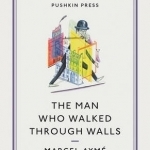
The Man Who Walked Through Walls
Marcel Ayme, Sophie Lewis and Yann Kebbi
Book
A collection of funny and fantastical short stories, Marcel Ayme's The Man Who Walked through Walls...
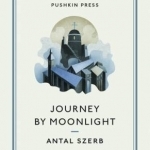
Journey by Moonlight
Antal Szerb, Len Rix and Eoin Ryan
Book
A major classic of 1930s literature, Antal Szerb's Journey by Moonlight (Utas es Holdvilag) is the...
Kristy H (1252 KP) rated In the Role of Brie Hutchens... in Books
Jul 2, 2020
Brie Hutchens is an eighth-grader at a Catholic school. She loves soap operas and dreams of being the star of the school play. She wants to go to drama school next year. Brie also has feelings that she's pretty sure are different than the other kids at her school. For instance, she gets a fluttery feeling looking at photos online of her favorite soap opera actress. But when Brie's (very religious) mom walks in on her doing so, Brie freaks out and tells her Mom she's been chosen to crown the Mary statue at her school's ceremony. She hasn't of course, and even worse, she probably stands no chance at earning the gig, since it usually goes to a top student. One like Kennedy, whom Brie usually avoids. But as Brie starts to spend a little more time with Kennedy, she realizes Kennedy gives her the same feeling as that soap actress. And that none of this is going to make her mother happy (or help her crown Mary).
This is a very sweet, heartwarming, and touching story about a young girl finding her way and finding herself. I'm a sucker for coming of age stories, but when they are lesbian coming of age stories? I'm sold. Brie is an interesting character, who even comes across a little ungrateful at times--though perhaps she's just a typical teenager. She's embarrassed her dad works at her school and often seems a bit self-centered and in her own world. Okay, yeah, she's a teenager. But her battle with her sexual identity is certainly one I could identify with and it's presented in a lovely and truthful way. It's exactly the kind of book kids this age need, especially teens being raised in a religious environment.
The book is more religious than I expected, but it's not off-putting. As someone whose first love love came from a religious Catholic family, I saw so much of my past life in this book. I loved the fact that Brie is a soap fan--as kid who grew up loving Dallas, Days of Our Lives, Passions, and Sunset Beach, this part of the book was totally fun. Yet, Melleby worked in the angle in a serious way, too, as Brie uses soaps as a way to realize that maybe she isn't so different after all (thank you, soaps, for having some progressive characters ahead of your time).
"But when Brie and her mom sat in the living room, watching their soaps, Brie forgot they had so little in common."
Brie is fun and sweet and she's decidedly her own person, yet scared of how her religious mom and her Catholic school friends might see her if she reveals she likes girls. Her agonizing over this, her fear of coming out, is raw and realistic. The difficultly of coming out really resonates here, and Melleby does a wonderful job capturing how hard it is, even now.
Overall, this is a lovely and tender book--funny and sweet--and a great children's/YA read. If you love coming of age stories, YA novels, or any LQBTIA youth fiction, I think this novel will tug at your heartstrings.
This is a very sweet, heartwarming, and touching story about a young girl finding her way and finding herself. I'm a sucker for coming of age stories, but when they are lesbian coming of age stories? I'm sold. Brie is an interesting character, who even comes across a little ungrateful at times--though perhaps she's just a typical teenager. She's embarrassed her dad works at her school and often seems a bit self-centered and in her own world. Okay, yeah, she's a teenager. But her battle with her sexual identity is certainly one I could identify with and it's presented in a lovely and truthful way. It's exactly the kind of book kids this age need, especially teens being raised in a religious environment.
The book is more religious than I expected, but it's not off-putting. As someone whose first love love came from a religious Catholic family, I saw so much of my past life in this book. I loved the fact that Brie is a soap fan--as kid who grew up loving Dallas, Days of Our Lives, Passions, and Sunset Beach, this part of the book was totally fun. Yet, Melleby worked in the angle in a serious way, too, as Brie uses soaps as a way to realize that maybe she isn't so different after all (thank you, soaps, for having some progressive characters ahead of your time).
"But when Brie and her mom sat in the living room, watching their soaps, Brie forgot they had so little in common."
Brie is fun and sweet and she's decidedly her own person, yet scared of how her religious mom and her Catholic school friends might see her if she reveals she likes girls. Her agonizing over this, her fear of coming out, is raw and realistic. The difficultly of coming out really resonates here, and Melleby does a wonderful job capturing how hard it is, even now.
Overall, this is a lovely and tender book--funny and sweet--and a great children's/YA read. If you love coming of age stories, YA novels, or any LQBTIA youth fiction, I think this novel will tug at your heartstrings.
